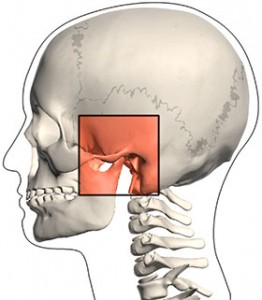TMJ & Bruxism

 Dental Care
Dental Care
TMJ & Bruxism

The nightly grind
Tooth grinding and clenching (called bruxism) may happen during waking hours but mostly occurs during sleep. This can lead to many issues and neuromuscular dentistry is the term used when looking at bite problems and habits and assessing the function of your jaw joints and muscles. Problems that may occur include:
• Tooth sensitivity and pain
• Clicking or grating sounds in the jaw joints
• Headaches
• Facial, neck, shoulder or back pain
• Pain or tenderness in and around the jaw joints especially upon waking
• Worn tooth surfaces
• Broken or chipped teeth
• Broken or loose fillings.
These symptoms need careful evaluation and may be treated by a combination of therapies. Many people will gain much relief by being provided with a bite guard, known as an occlusal splint, for nighttime wear.
Sometimes drug therapy, physiotherapy and psychological management may also be recommended.
TMJ
Your temporomandibular joint is one of the most used in your body. It’s the joint that connects your jawbone to your skull and why you’re able to talk, yawn, chew and move your mouth from side to side.
The way your teeth, muscles, and jaw joints work together can sometimes move out of alignment. This problem is called a temporomandibular joint disorder or TMD, which may cause headaches and migraines.
Neuromuscular dentistry places the jaw into its best possible position, relieving the symptoms associated with TMD. Our hard and soft tissues have a complex relationship and at Infinity Dental Care we work to make that relationship a harmonious one by evaluating the hard and soft tissues, muscles and nerves in addition to your teeth, bones and gums.
Firstly, we determine the optimal position of your jaw by measuring the relaxed position of the head and neck muscles and then we will reposition your jaw to achieve those exact measurements.
Malocclusion is relatively easy to correct. Treatment options include adjusting the bite, orthodontics or restoring the teeth to their correct positions.
Patients of neuromuscular dentistry experience a range of benefits from decreased or eliminated pain to better overall health and longer-lasting dental restorations.
If you suffer from recurrent headaches or migraines, hear a clicking or popping sound when you chew or have been told you grind your teeth while sleeping, talk to us about neuromuscular dentistry treatment at your next appointment at Infinity Dental Care Winston Hills. You can call us on (02) 9159 6237. Our practice is located at 180 Caroline Chisholm Drive, Winston Hills NSW 2153.


